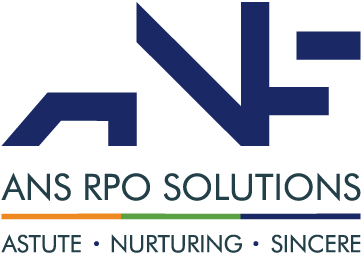Recruitment Process Outsourcing (RPO) has emerged as a strategic solution for organizations looking to optimize their talent acquisition processes and achieve better outcomes. By partnering with external experts, companies can tap into specialized resources and industry knowledge, enabling them to attract top talent more efficiently. However, to truly maximize the benefits of Recruitment Process Outsourcing (RPO), organizations need to adopt a systematic and proactive approach.
Unlocking the Power of Recruitment Process Outsourcing (RPO) for Optimal Results
This article explores key strategies to enhance the advantages of Recruitment Process Outsourcing (RPO). It emphasizes the importance of clearly defining goals, establishing effective communication channels, setting performance metrics and building strong relationships with outsourcing providers. Additionally, it highlights the significance of considering intangible benefits beyond cost savings, such as improved quality of hires and enhanced employer brand.
Furthermore, the article underscores the need for continuous improvement and adaptability in Recruitment Process Outsourcing (RPO). Regular evaluations, feedback loops, and staying updated on market trends are essential to refine strategies and maintain a competitive edge.
- Define Your Goals: Before embarking on the Recruitment Process Outsourcing (RPO) journey, it is crucial to clearly define your goals and expectations. Identify the specific outcomes you want to achieve, whether it is reducing time-to-fill, improving candidate quality, increasing the number of hires, catering to hard-to-find requirements, fulfilling roles outside your core competency or expanding your talent pool. This clarity will not only help you select the right outsourcing provider but also serve as a foundation for measuring success.

- Establish Clear Communication Channels: Effective communication is vital for a successful Recruitment Process Outsourcing (RPO arrangement). Establish clear and efficient channels of communication with your outsourcing provider to ensure seamless collaboration. Regular meetings, status updates, and feedback sessions are essential for keeping everyone aligned and addressing any concerns or issues that may arise. Open and transparent communication helps build trust and fosters a collaborative partnership.
- Set Performance Metrics: To evaluate the effectiveness of Recruitment Process Outsourcing (RPO), it is essential to establish measurable performance metrics. Define key performance indicators (KPIs) that align with your goals and track them consistently. These metrics can include time-to-fill, cost-per-hire, candidate satisfaction, and quality of hires. Regularly review and assess these metrics to gauge the success of the outsourcing partnership and identify areas for improvement.
- Build a Strong Relationship: A strong and collaborative relationship with your outsourcing provider is crucial for maximizing the benefits of Recruitment Process Outsourcing (RPO). Treat the provider as a strategic partner rather than just a service provider. Invest time in building a relationship based on trust, open communication, and shared goals. Regularly engage with the provider to understand their approach, share feedback, and discuss any evolving needs or challenges.
- Leverage Technology and Data Analytics: Embrace technology and data analytics to enhance the effectiveness of Recruitment Process Outsourcing (RPO). Leverage applicant tracking systems (ATS), candidate relationship management (CRM) tools, and other relevant technologies to streamline the recruitment process, automate repetitive tasks, and gain valuable insights. Data analytics can provide actionable intelligence on sourcing channels, candidate preferences, and performance metrics, enabling data-driven decision-making and continuous improvement.
- Ensure Alignment with Company Culture: Company culture plays a significant role in attracting and retaining top talent. When outsourcing recruitment, it is important to ensure that the provider understands and aligns with your organization’s values, mission, and culture. The provider should be able to effectively communicate your employer brand and deliver a positive candidate experience that reflects your company culture.
- Continuously Evaluate and Improve: Maximizing the benefits of Recruitment Process Outsourcing (RPO) requires a continuous evaluation and improvement mindset. Regularly assess the performance of the outsourcing provider, review the achieved outcomes, and identify areas for enhancement. Seek feedback from internal stakeholders and candidates to gain insights into the effectiveness of the recruitment process and identify opportunities for refinement.
Read More: Offshore RPO : Benefits Beyond Cost Savings - Emphasize Collaboration and Knowledge Transfer: Collaboration between the outsourcing provider and internal stakeholders is crucial for success. Encourage knowledge sharing and transfer between the outsourcing provider and your internal team. This can involve sharing industry insights, market trends, and candidate feedback. Regular meetings, workshops, and training sessions can facilitate collaboration and ensure that both parties are aligned in their approach to recruitment.
- Monitor and Mitigate Risks: While Recruitment Process Outsourcing (RPO) offers many benefits, it is important to be aware of potential risks and take necessary measures to mitigate them. Regularly monitor the performance of the outsourcing provider, track compliance with legal and regulatory requirements, and ensure data security and confidentiality. Establish contingency plans to address any unexpected challenges and maintain regular communication to address concerns promptly.
In conclusion, maximizing the benefits of Recruitment Process Outsourcing (RPO) requires a strategic and collaborative approach. By establishing clear goals, metrics, and communication channels with the outsourcing provider, organizations can ensure a strong partnership and drive improved outcomes. Recognizing the intangible benefits, such as improved quality of hires, contributes to a more comprehensive evaluation of the return on investment. Building a strong relationship with the outsourcing provider through collaboration, knowledge transfer, and continuous improvement efforts fosters trust and shared goals. Staying agile and flexible allows organizations to adapt to changing business needs and capitalize on new opportunities. By implementing these strategies, organizations can maximize the benefits of Recruitment Process Outsourcing (RPO), attract top talent, streamline processes, and achieve overall business success.
ANS RPO Recruitment Services, serving as a talent sourcing agency, helps staffing firms build a quality talent pool with a team of passive candidate sourcing experts.


